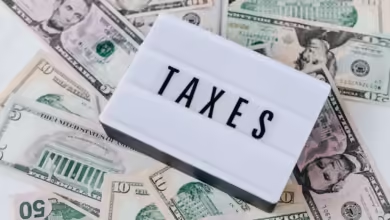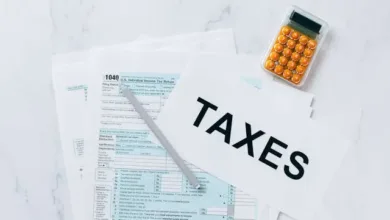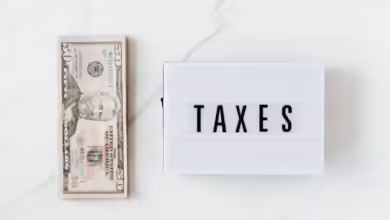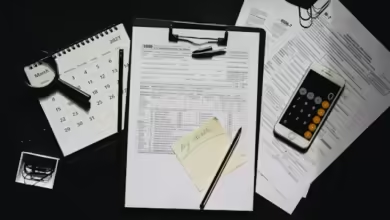Essential Tax Documents for 2024: Your Ultimate Filing Checklist
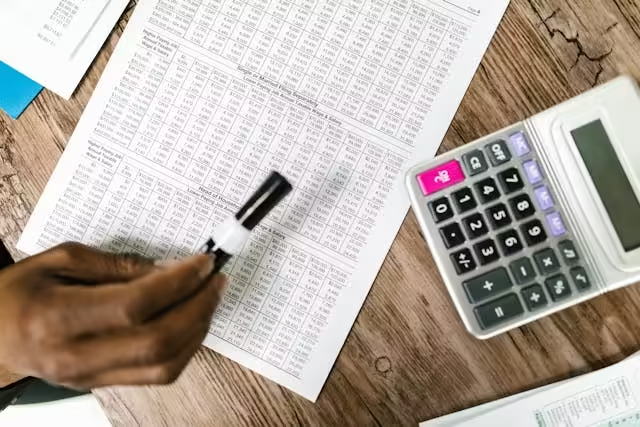
Table of Contents
Filing taxes can be a daunting task, but having the right tax documents on hand can make the process much smoother. Whether you’re filing your taxes yourself or working with a tax professional, being organized and prepared is key. This guide will walk you through the essential tax documents you need to file your taxes, ensuring that you don’t miss any important deductions, credits, or income reports.
1. Personal Information
The first step in preparing to file your taxes is gathering all necessary personal information. This includes:
- Social Security Numbers (SSNs): For yourself, your spouse (if filing jointly), and any dependents.
- Tax Identification Number (TIN): If you don’t have a Social Security Number, you’ll need your TIN.
- Last Year’s Tax Return: Having a copy of your previous year’s return can help ensure consistency and accuracy in your current filing.
2. Income Documents
To accurately report your income, you’ll need to gather all relevant income documents. These include:
a. W-2 Forms
- Issued by your employer, a W-2 form reports your annual wages and the amount of taxes withheld. You’ll need a W-2 form for each job you held during the tax year.
b. 1099 Forms
- 1099-NEC: For independent contractors and freelancers, this form reports non-employee compensation.
- 1099-MISC: Used to report various types of income, including rent, royalties, and prizes.
- 1099-INT: Reports interest income earned from bank accounts and investments.
- 1099-DIV: For dividends and distributions from investments.
- 1099-G: Reports unemployment compensation and state tax refunds.
- 1099-R: For distributions from pensions, annuities, and retirement plans.
c. Self-Employment Income
- If you’re self-employed, you’ll need to gather all records of income received throughout the year, including invoices, receipts, and bank statements.
d. Other Income
- Alimony Received: If you received alimony, you’ll need to report it as income.
- Social Security Benefits: If you received Social Security, you’ll need the SSA-1099 form.
- Gambling Winnings: Reported on Form W-2G, if applicable.
- Rental Income: Any income received from rental properties.
3. Deduction and Credit Documentation
Maximizing your tax refund often involves taking advantage of deductions and credits. To do so, you’ll need the following documents:
a. Mortgage Interest Statement (Form 1098)
- If you own a home and pay mortgage interest, you’ll receive a Form 1098 from your lender. This document is crucial for claiming the mortgage interest deduction.
b. Property Tax Records
- Records of property taxes paid on your home can be deducted if you itemize your deductions.
c. Student Loan Interest Statement (Form 1098-E)
- If you paid interest on a student loan, you’ll need Form 1098-E to claim the student loan interest deduction.
d. Educational Expenses (Form 1098-T)
- For those paying tuition and educational expenses, Form 1098-T provides the information needed to claim education credits like the American Opportunity Credit or Lifetime Learning Credit.
e. Charitable Contributions
- Keep receipts or acknowledgment letters from any charitable donations you made during the year. This includes both cash and non-cash contributions.
f. Medical Expenses
- If you had significant medical expenses, keep records of payments for doctor visits, prescriptions, and insurance premiums.
g. Childcare Expenses
- If you paid for childcare, you’ll need the provider’s name, address, TIN, and the total amount paid. This information is required to claim the Child and Dependent Care Credit.
h. Retirement Contributions
- Documents related to contributions made to IRAs, 401(k)s, and other retirement accounts. This includes Form 5498, which reports contributions to IRAs.
i. Energy-Efficient Home Improvements
- If you made qualifying energy-efficient improvements to your home, such as installing solar panels, keep records to claim related tax credits.
4. Investment and Savings Documents
Investments and savings can have significant tax implications. Be sure to gather the following:
a. Brokerage Statements
- Statements from your brokerage account(s) detailing the purchase and sale of stocks, bonds, and other securities.
b. Form 1099-B
- Reports capital gains and losses from the sale of securities.
c. Form 1099-S
- If you sold real estate, this form reports the proceeds from the sale.
d. Cryptocurrency Transactions
- Records of buying, selling, or trading cryptocurrencies must be reported. Keep a detailed log of all transactions.
5. Health Insurance Information
With healthcare being a major aspect of tax filings, you’ll need these documents:
a. Form 1095-A, B, or C
- 1095-A: For those who purchased health insurance through the Marketplace.
- 1095-B: For coverage through private insurers or government programs like Medicare.
- 1095-C: For employer-provided health insurance.
b. Health Savings Account (HSA) Contributions
- Records of contributions made to an HSA can be deducted, and you’ll need Form 5498-SA and Form 1099-SA.
6. Other Essential Documents
Don’t forget these additional documents that might apply to your specific situation:
a. Prior Year State Refund Amount
- If you itemized deductions last year, you’ll need to report any state tax refunds received.
b. Alimony Paid
- If you paid alimony, you’ll need the recipient’s name and SSN, along with the total amount paid.
c. Rental Property Income and Expenses
- Keep detailed records of rental income and expenses related to property management, repairs, and maintenance.
d. Estimated Tax Payments
- If you made estimated tax payments throughout the year, have the payment records on hand to ensure accurate reporting.
Conclusion
Having all the essential documents ready before you start filing your taxes can save you time, reduce stress, and help ensure you don’t miss out on valuable deductions or credits. Whether you file online, use tax software, or consult with a professional, this checklist will help you stay organized and prepared for the tax season.
Link to External Resources:
- IRS – Checklist for Filing Your Taxes
- The IRS provides an official checklist and resources for individuals preparing to file their taxes.
- TurboTax – What Documents Do I Need to File My Taxes?
- TurboTax offers a comprehensive guide on the documents required for tax filing, including income, deductions, and credits.


